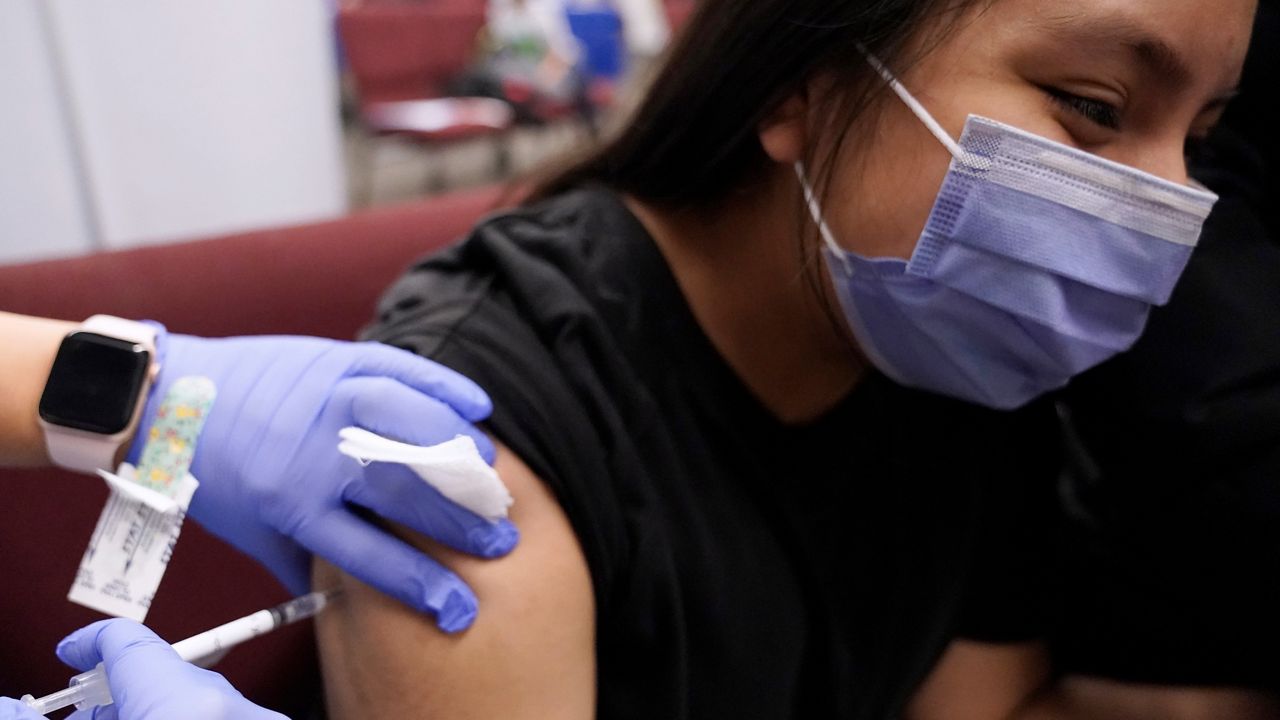The holiday season is here again, the second since the global coronavirus pandemic began. There are still high COVID-19 case numbers across the country, even as attention turns to yet another new variant of the virus.
Delta is still the dominant variant in the United States and is fueling higher case numbers, public health officials say. But doctors and public health officials say the omicron variant could spread even faster, especially as people travel and gather together for the holidays.
“We all want to relax and get back to a normal life,” said Duke Health virologist Dr. David Montefiori. “The best advice is to be a little more vigilant with wearing your mask and social distancing, avoiding large crowds, especially indoors.”
“Be protective of people in your family who are elderly or have underlying medical conditions and are more prone to serious illness if they get infected,” he said.
Almost every state in the country is back in the Centers for Disease Control and Prevention’s “red zone,” meaning high community transmission is happening.
Public health officials worry this winter could lead to a spike in cases like the country saw a year ago. The newest variant, omicron, is still just a small portion of the cases in the United States, but that could change in the weeks and months to come.
“Holiday season is going to be an opportunity for omicron to spread even more and create that spike that we’ve seen after other holiday seasons,” Montefiori said.
“This variant has thrown us a curveball at the worst possible time,” said Thomas Denny, with the Duke Human Vaccine Institute.
“I think a lot of people are re-thinking how they will get together and what they will do. Every family has to decide what’s the norm for them, what they’re comfortable accepting,” he said.
Doctors and public health officials say people can try to be as safe as possible by getting vaccinated and getting booster shots, wearing a mask and getting tested before they travel and after they get back home.
“In advance of families coming together, I try to encourage all to be as aggressive as they can with masking and social distancing in whatever environment they’re in prior to coming together,” Denny said. “Hopefully, they are all vaccinated.”
He said people should get tested as close as possible to when they are gathering with family.
“In a family that’s fully vaccinated and willing to exercise some caution, I think we can have some family gatherings,” Denny said.
One difference between delta and omicron, Denny said, is that people take five to seven days to show symptoms with delta. People infected with omicron seem to start showing symptoms in one to three days.
But the symptoms of omicron appear be less severe compared to delta, he said.
The omicron variant will likely overtake delta to become the dominant strain in the United States "very soon," said Dr. Anthony Fauci, the country’s top infectious disease expert.
"It has what we call a doubling time of about three days and if you do the math on that, if you have just a couple of percentage of the isolates being omicron, very soon it's going to be the dominant variant," Fauci said Thursday on ABC’s “Good Morning America.”
In North Carolina, new cases and the number of people hospitalized with COVID-19 has been increasing in recent weeks.
The state’s Department of Health and Human Services Secretary Dr. Mandy Cohen said it is possible for people to gather with friends and family this year. She said the safety depends on three things: getting vaccinated, getting tested and wearing masks.
“People who are unvaccinated are vulnerable to COVID-19. Almost all hospitalizations and deaths are in people who are not vaccinated,” Cohen said this week. “With the holidays, colder weather and the potential of a new variant approaching, please don’t wait any longer to get vaccinated.”



